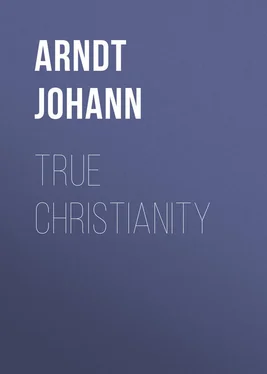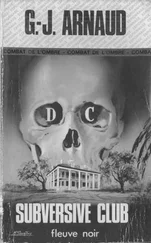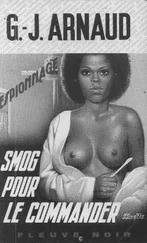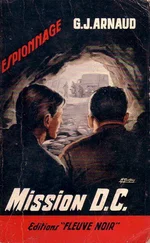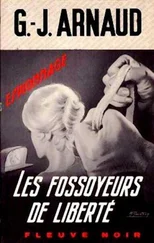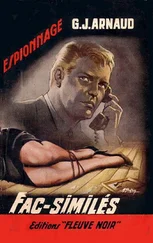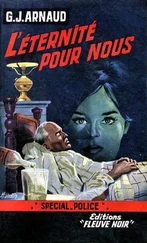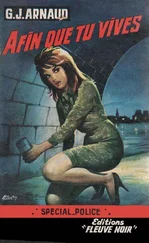Johann Arndt - True Christianity
Здесь есть возможность читать онлайн «Johann Arndt - True Christianity» — ознакомительный отрывок электронной книги совершенно бесплатно, а после прочтения отрывка купить полную версию. В некоторых случаях можно слушать аудио, скачать через торрент в формате fb2 и присутствует краткое содержание. ISBN: , Жанр: foreign_antique, foreign_prose, на английском языке. Описание произведения, (предисловие) а так же отзывы посетителей доступны на портале библиотеки ЛибКат.
- Название:True Christianity
- Автор:
- Жанр:
- Год:неизвестен
- ISBN:http://www.gutenberg.org/ebooks/34736
- Рейтинг книги:5 / 5. Голосов: 1
-
Избранное:Добавить в избранное
- Отзывы:
-
Ваша оценка:
- 100
- 1
- 2
- 3
- 4
- 5
True Christianity: краткое содержание, описание и аннотация
Предлагаем к чтению аннотацию, описание, краткое содержание или предисловие (зависит от того, что написал сам автор книги «True Christianity»). Если вы не нашли необходимую информацию о книге — напишите в комментариях, мы постараемся отыскать её.
True Christianity — читать онлайн ознакомительный отрывок
Ниже представлен текст книги, разбитый по страницам. Система сохранения места последней прочитанной страницы, позволяет с удобством читать онлайн бесплатно книгу «True Christianity», без необходимости каждый раз заново искать на чём Вы остановились. Поставьте закладку, и сможете в любой момент перейти на страницу, на которой закончили чтение.
Интервал:
Закладка:
§ 27. The essential features of vital godliness are always the same; yet “there are diversities of gifts, but the same Spirit.” 1 Cor. 12:4. Paul insists on faith; John, on love. Luther's religion was, like that of Arndt, earnest, and yet cheerful. Both were enabled by their personal experience to understand the nature of these Christian virtues, and also the distinction between them. Luther dwells with wonderful power on faith . Arndt delights to speak of God's love . There is something very beautiful in these different developments of true godliness in the servants of Christ, while the influences of the same divine Spirit controls them alike.
§ 28. It would be an error to suppose that the whole world had risen up in arms against Arndt, after he had assumed his position as an humble and devout Christian. Vast numbers received his First Book on True Christianity with gratitude and joy. It enlightened their minds; it controlled the conscience; it diffused the warmth of life through their souls; and they thanked God that such a book, so full of love, had been given to the world. A comparatively small number of men rose up against him. Certain individuals, such as his colleague, Denecke, a co-pastor of the same congregation in Brunswick, were, no doubt, influenced by envy and personal dislike. But others who opposed him, were by no means governed solely by unworthy personal considerations. Some of them were so much concerned about “questions and strifes of words” (1 Tim. 6:4), that they overlooked and misconceived the heavenly-mindedness of Arndt. Others, who did him injustice, were led astray by the infelicity of the times. We have already referred to the disastrous influences of the mysticism and fanaticism which, in addition to other corruptions of the true faith, had appeared about, and after, the period of the birth of Arndt. For instance, the Swiss physician, Paracelsus (who died as a Roman Catholic in 1541), had published various fantastic and mystical writings, in which he professed that he understood both mundane and supermundane mysteries. Now a certain Lutheran pastor in Saxony, named Weigel, who died in 1588, and who had been confessedly a man of an upright walk and conversation, had yielded to a tendency to the mysticism and theosophy of Paracelsus. He was thus led theoretically to undervalue the doctrines of the church, and to represent them as merely allegorical forms, involving truths not known to ordinary men. The natural results of his theory, if its folly had not been exposed, would unquestionably have seriously affected the authority of the written Word. Before his writings were published, a friend had communicated to Arndt a short extract from them, which contained none of his errors; the author's name had been withheld. Arndt, in his innocence, inserted the passage in his book, and was thus burdened with the odium of all the Weigelian errors; but he was subsequently released from all censure, and his freedom from anything like the mysticism of Weigel was generally conceded.
§ 29. Another ground of the charge of mysticism which his opponents advanced, was found in his repeated references in the “True Christianity” to Tauler. Here, too, Arndt made a brilliant defence, by quoting the great Luther as his authority. The latter had obtained possession of a manuscript without a title or an author's name, which deeply interested him. It dwelt entirely on the communion of the soul with God, and on kindred topics. Luther, whose godliness was healthy and sound, was so much charmed with the work, that he published a part of it at Wittenberg in 1516, and prefixed the title: “A spiritual, noble little work, explaining the distinction between the old and the new man; showing, also, who are the children of Adam and the children of God, and how Adam must die in us, and Christ live in us.” During the course of the next year he published the whole work, with an extended Preface of his own, and adopted the title: “A German Theology”; this general title it has since retained. It was received with unbounded favor, and circulated rapidly throughout Europe, for instance, in three English, seven Latin, four French, etc., translations, besides numerous editions of the original German. It was supposed to have been written by Tauler, a very devout man, who was born in the year 1290. His religious tendencies led him, like Luther, to enter a monastery. The sermons and other writings which he left behind, while their general character assign to him a place among those who are denominated “Mystics,” nevertheless abound in holy and devout aspirations, and were dictated by a spirit that sought and found peace in the grace of God alone. – Arndt entertained the opinion that the “German Theology” was a production of his pen, and so represents the case in his “True Christianity.” It is now, however, generally conceded, in consequence of an allusion in the work itself to Tauler as a religious teacher of an earlier day, that another person, belonging to a later period, was the writer; his name is still involved in impenetrable darkness. – So, too, it is by no means certain that Thomas á Kempis (born in 1380), was the author of the popular book “On the Imitation of Christ,” of which more than two thousand editions in the original language, more than one thousand in French, besides innumerable others in German, English, etc., have been published. The historical arguments, adduced chiefly by French writers, intended to support the claims of the eminent Gerson (born in 1363), as the author, although not entirely conclusive, are still possessed of great weight. – Arndt incidentally remarks in a brief statement respecting the “German Theology,” that his copy, printed at Wittenberg in 1520, contained simply the remark that the book had been written by a devout priest of the city of Frankfort, for devotional purposes, but the author's name was withheld. If Luther sanctioned the publication of the “German Theology,” Arndt could calmly listen to those who censured him for adopting a similar course. Those extracts at least, which he furnishes in the “True Christianity,” are, unquestionably, evangelical and truly edifying.
§ 30. It will, perhaps, gratify the reader to observe the skill with which Wildenhahn, to whom we have already referred, illustrates the childlike simplicity of Arndt's character, by combining fiction with truth. During his Brunswick pastorate, the City Council of Halberstadt sent him an urgent call to become the successor of the deceased Rev. D. Sachse, as pastor of the church of St. Martin in that city. After he had consulted with his intelligent wife, who, like himself, was anxious to withdraw to any spot where peace could be found, he resolved to accept the call; and, in accordance with custom and law, applied to the Brunswick City Council for letters of honorable dismission. When the question was to be decided, Arndt appeared in the presence of the burgomaster, Kale, the syndic, Dr. Roerhand, and other members of the Council, and renewed his request. These details are historically true. Wildenhahn now subjoins the following: “Tell me honestly,” said the syndic to him, “have you really, as you allege, taken no steps whatever, in order to obtain this call from Halberstadt?” “Not a single step,” said Arndt, in a solemn manner, with his right hand on his heart, “the whole is altogether and exclusively a work of God.” But at the moment when he pronounced this solemn declaration, it became evident to those who were present, that a sudden thought had startled him; he changed color; he began to tremble; he suddenly covered his eyes with his left hand. Then, with a voice betraying deep emotion, he added: “Gentlemen, I have borne false witness! I really did do something to obtain this call.” “Ah!” said Kale quickly, delighted, as it seemed, to find an opportunity for displaying his official dignity, “You did? Pray, tell us what it was.” “I prayed to the blessed Lord with tears, that he would assign to me some other spot in his vineyard, no matter how insignificant, if I could only there preach his word in peace.” “And was that all?” inquired the burgomaster, much surprised, and speaking in more gentle tones. “That was all,” replied Arndt, “and this is true, as God lives! But, doubtless, I erred here, in impatiently attempting to dictate to God, etc.” Such simplicity of character, such perfect ingenuousness, such a wonderful freedom from artifice and disguise, completely disarmed the members of the Council. They now understood better than previously the artlessness and spirituality of the man before them, and, after that scene, they accorded to him entire esteem and confidence.
Читать дальшеИнтервал:
Закладка:
Похожие книги на «True Christianity»
Представляем Вашему вниманию похожие книги на «True Christianity» списком для выбора. Мы отобрали схожую по названию и смыслу литературу в надежде предоставить читателям больше вариантов отыскать новые, интересные, ещё непрочитанные произведения.
Обсуждение, отзывы о книге «True Christianity» и просто собственные мнения читателей. Оставьте ваши комментарии, напишите, что Вы думаете о произведении, его смысле или главных героях. Укажите что конкретно понравилось, а что нет, и почему Вы так считаете.
